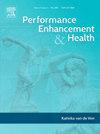Context is everything: A realist response to the commentary on epistemic racism in anti-doping research by Ruwuya et al. 2024
IF 2.9
Q2 HOSPITALITY, LEISURE, SPORT & TOURISM
引用次数: 0
Abstract
This article responds to Ruwuya et al.'s (2024) critique of epistemic racism in anti-doping research, particularly their mischaracterization of our study (Veltmaat et al., 2023). We challenge their claims, emphasising the importance of shared responsibility within the research community to produce culturally relevant, contextually accurate findings, as well as data-close and nuanced interpretations. Contrary to accusations of perpetuating stereotypes about athletes from developing nations, our research in Veltmaat et al. (2023) explores the complex interplay of cultural, social, and economic factors influencing athletes' vulnerability to doping. We stress the need to consider well-documented cultural value differences, such as those between Western and African countries, in shaping anti-doping education and policy. Our findings in Veltmaat et al. (2023) demonstrate that athletes’ internalisation of societal values of sport varies, and influenced by a combination of individual and contextual factors. Vulnerability to doping is not confined to any specific race, gender, or location, but arises where values tied to safety, economic stability, or social mobility outweigh rule compliance or the ‘spirit of sport’. We advocate for a decolonised approach to anti-doping that embraces cultural diversity and integrates local values into global frameworks. Personal values, not solely the ‘spirit of sport,’ often serve as protective factors against doping. Our research highlights that values-based anti-doping education may falter when overly reliant on a colonialised narrative of values, particularly in contexts where athletes face diverse pressures. We caution against over-sensitising critiques of epistemic bias, because doing so can hinder constructive dialogue and stifle progress in anti-doping research.
语境决定一切:对Ruwuya等人对反兴奋剂研究中的认知种族主义评论的现实主义回应。2024
本文回应了Ruwuya等人(2024)对反兴奋剂研究中认识论种族主义的批评,特别是他们对我们研究的错误描述(Veltmaat等人,2023)。我们挑战他们的主张,强调研究界共同承担责任的重要性,以产生与文化相关、上下文准确的发现,以及数据接近和细致入微的解释。与对发展中国家运动员的刻板印象的指责相反,我们在Veltmaat等人(2023)中的研究探索了影响运动员易受兴奋剂影响的文化、社会和经济因素之间复杂的相互作用。我们强调,在制定反兴奋剂教育和政策时,需要考虑有充分证据的文化价值差异,例如西方国家和非洲国家之间的文化价值差异。我们在Veltmaat等人(2023)的研究结果表明,运动员对体育社会价值的内化是不同的,并受到个人和环境因素的综合影响。兴奋剂的脆弱性并不局限于任何特定的种族、性别或地区,而是出现在与安全、经济稳定或社会流动性相关的价值观高于遵守规则或“体育精神”的地方。我们主张采取非殖民化的反兴奋剂方式,拥抱文化多样性,将地方价值观融入全球框架。个人价值观,而不仅仅是“体育精神”,经常成为抵制兴奋剂的保护因素。我们的研究强调,当过度依赖于殖民主义的价值观叙事时,以价值观为基础的反兴奋剂教育可能会动摇,尤其是在运动员面临各种压力的情况下。我们警告不要对认知偏见的批评过于敏感,因为这样做会阻碍建设性的对话,扼杀反兴奋剂研究的进展。
本文章由计算机程序翻译,如有差异,请以英文原文为准。
求助全文
约1分钟内获得全文
求助全文
来源期刊

Performance enhancement and health
Social Sciences-Health (social science)
CiteScore
4.70
自引率
0.00%
发文量
27
审稿时长
57 days
 求助内容:
求助内容: 应助结果提醒方式:
应助结果提醒方式:


